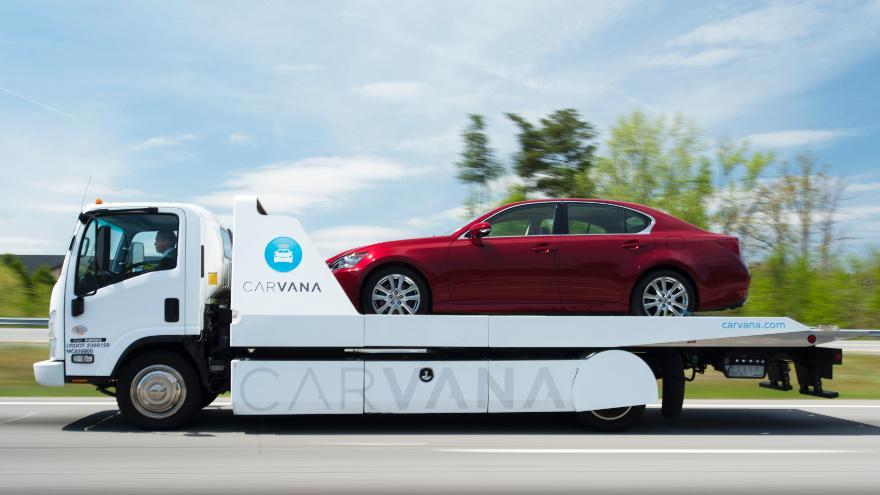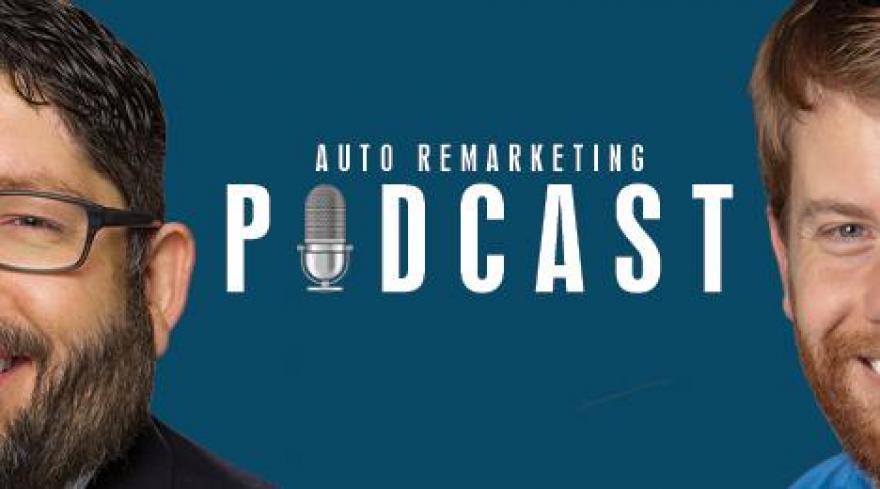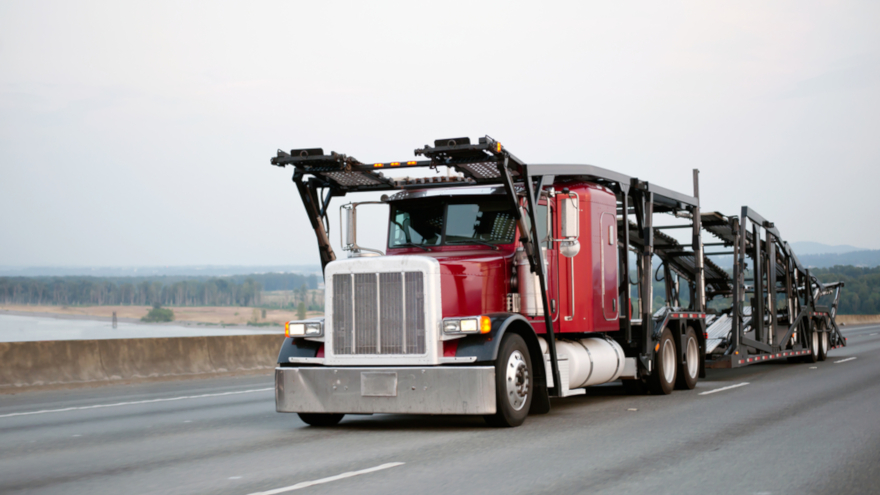Mobility company Ridecell appointed Fernando Ruarte to vice president of engineering and Gelena Sachs as vice president of people.
In his new role, Ruarte will manage global teams developing Ridecell customer and mobility platforms for Ridecell, which is a car-sharing, ride-sharing and autonomous ride-hailing platform for new mobility operators.
Ruarte's 20-plus years of engineering management experience includes positions as a chief technology officer and senior engineering executive.
Ruarte has built, grown and managed development teams of several hundred engineers on three continents and has overseen cloud computing and big data projects for enterprise companies such as Mode Media, Extended Systems, Oracle and the French government. He studied at Instituto Tecnologico de Buenos Aires and is a joint inventor of multiple patents in areas such as online processing and geo-database technologies.
Sachs’ 15-plus years of human resources and organizational effectiveness experience includes human resources management at start-ups and large established enterprises, including Clorox, Riverbed Technology, Illumina, Stitch Fix, Udemy and Business Wire. She has employed people analytics to transform organizational structures and implement people-centric employee programs. Sachs holds an economics degree from the University of California, Berkeley.
Aarjav Trivedi, chief executive officer of Ridecell, said in a news release that the company is accelerating the development of its mobility and operations platform to support use cases in areas such as car-sharing and autonomous ride-hailing.
"Fernando and Gelena each bring years of industry experience and deep technical expertise, which make them invaluable additions to our management team,” Trivedi said.
Automotive logistics provider ACERTUS has promoted Rich Pinnock to the position of senior vice president of Drive Away and Alisha Buelt to vice president of strategic services.
Pinnock will lead the Drive Away division in the United States and Canada for ACERTUS. He is a nearly 20-year veteran of the logistics and fleet management industries, with experience in key disciplines of the business, including information technology, operations and compliance. He was previously responsible for information technology and strategic accounts for AmeriFleet before ACERTUS acquired that company.
“Beyond being highly experienced and uniquely accomplished in the industry, Rich is decidedly respected by our employees and customers alike,” William Billiter, ACERTUS co-founder and chief executive officer, said in a news release.
Buelt is a veteran of the automotive logistics industry and has served in various roles with ACERTUS, most recently as director of operations. In that role, she focused on managing and streamlining the company’s Drive Away service out of its Alpharetta, Ga. location. In her new role, she will focus primarily on ACERTUS’ title and registration service line.
“Alisha is undoubtedly one of our company’s rising stars,” Billiter said. “I’ve worked closely with her for nearly 15 years, and it’s been a pleasure to watch her learn the business from the ground up and become the proven leader that she is today. I have no doubt that she will continue to play a critical role for us for many years to come.”
With Carvana's two January announcements of its continued growth, more residents of New York and Georgia will be able to use the company's vehicle buying, selling, financing and other services.
The company announced on Jan. 30 that it has launched in five New York markets: Rochester, Buffalo, Syracuse, Binghamton and Albany. That news follows Carvana’s Jan. 16 announcement that it launched in Columbus, Ga., the fourth market for Carvana in the state. Since its founding in 2012 as an e-commerce platform for buying, financing and selling new cars, Carvana has described itself as a company that offers consumers an intuitive online car buying and financing platform with as-soon-as-next-day vehicle delivery. Carvana now offers services in 91 markets across the U.S.
Ernie Garcia, founder and chief executive officer of Carvana, said in a news release that the company is looking forward to growing even more in New York.
“We launched in New York City last fall and found that New Yorkers welcomed the transparency and ease that Carvana brings to the car buying experience,” Garcia said.
He noted, however, that Georgia “is where it all started” for the company, which sold its first car in Atlanta in 2013.
“Being able to now expand to our fourth market in the state and show Columbus the new way to buy a car is something we’re very proud of,” Garcia said.
Fewer personal cars on the road. Less congestion. Cleaner air and more land for people, housing and open space.
Those are just some of the social and environmental benefits that car sharing can provide for its members and the cities in which they live. That assertion is according to car sharing network Zipcar’s 2018 Impact Report. The report is based on findings from 18 years of Zipcar member data as well as from third parties.
Zipcar says the findings, along with third-party research, offer evidence that car sharing provides those social and environmental benefits at a time when new mobility offerings are on the rise.
Additional findings of the study include its claims that car sharing frees up space for other pressing urban issues; car sharing sheds personal vehicles and helps the environment; and that car sharing delivers distinct social benefits.
Citing a 2010 article titled, "Impact of Carsharing on Household Vehicle Holdings," the study claims that Zipcar’s 12,000 vehicle fleet means an estimated 156,000 fewer cars on city streets. It also claims that 54 percent of Zipcar users report getting rid of a personal vehicle after joining Zipcar.
The study sources Zipcar’s 2018 National Transportation Survey in adding that 65 percent of Zipcar users report not owning a car today.
Zipcar uses that same survey in stating that its users rely on walking, biking and public transit for short trips and use car sharing services for longer, purpose-driven or recreational trips to out-of-town locations.
Also using information from the 2018 National Transportation Survey, Zipcar notes that 87 percent of Zipcar users spend less money per month on transportation when compared to the U.S. monthly average.
Zipcar’s 2018 Impact Report also addresses collaborative public/private partnerships, and the increasing mobility needs of non-profits. Zipcar’s Grant Program aims to address those two items in its mission to enable simple, equitable, and responsible urban living.
The company says that in 2018, it awarded more than $100,000 in driving credit to 36 local non-profit organizations in various cities where it operates. That allows these organizations to improve their work through access to Zipcar.
Zipcar’s 2018 Impact Report is available at www.zipcar.com/impact.
Honda and car-sharing network, Zipcar, say that they are continuing to expand and test new mobility programs to help consumers get around easier. The two companies announced an expansion of their mobility partnership on Monday, with a goal to achieve what they see as increased access to car sharing in California and Ohio.
The expansion will add hundreds of new Honda vehicles to Zipcar’s fleet, with a focus on boosting Zipcar’s university program in California and its service in Columbus, Ohio.
In Columbus, Honda and Zipcar on Monday announced the launch of what they are describing as a first-of-its-kind exclusive Honda car-sharing fleet, expanding Zipcar’s program that first launched in the Ohio city in June 2018. Thirty vehicles under the new expansion will operate at 17 Columbus locations, including a new campus car-sharing program at The Ohio State University.
In California, Honda is working to continue as Zipcar’s preferred automotive partner at schools within the University of California system and select campuses within the California State University network. The automaker is now announcing special rates on Zipcar memberships to students on campus and special driving rates to Zipcar members who use the 145 Honda vehicles located at various campus sites.
Zipcar and Honda announced their strategic partnership in 2012. Through the relationship, “We’ve been able to offer our members access to high-quality vehicles and support a number of valuable mobility programs, including the two new initiatives we’re announcing today,” said Tracey Zhen, Zipcar president. “We’re pleased to continue working with Honda to bring Zipcar to more people in more places.”
Steven Center, vice president of connected and environmental business development at American Honda, added that the expanded program will help reduce emissions and city congestion.
Through the expanded partnership, nearly 200 new Honda vehicles will now be available to Zipcar members, including the Honda Civic, Honda CR-V, Honda Fit, Honda HR-V and Honda Odyssey.
Students attending any school in the University of California system, select schools in the California State University network and The Ohio State University can now join Zipcar and drive a Honda at special rates by visiting www.zipcar.com/universities.
A new company is promising to “turn the traditional ridesharing business model on its head,” concentrating on factors such as safety and hospitality, along with passengers’ “in-car experience.”
The company, Alto, enters the on-demand rideshare market with $14.5 million from two rounds of funding and has several investment partners, but the new company wants those who use traditional ridesharing services to notice how it is different from traditional ridesharing companies.
Alto employs its drivers and manages a dedicated fleet. The service is a members-only experience. Members control the in-car experience, from the music to climate.
In the areas of safety and hospitality, Alto’s employee drivers are rigorously vetted, trained and performance-managed. The company’s fleet features new, 5-star-crash-rated SUVs, which it cleans and maintains daily. With the touch of Alto’s app, the Alto car lights up for easy identification as a member approaches. To protect drivers, the app notifies the drivers when their passenger is in range, so the drivers can unlock their doors only for their customers.
“I’m really excited about the potential to disrupt the disruptors in mobility,” says Alto chief executive officer Will Coleman. Alto plans to expand to more cities in 2019 and reach the national level by 2020.
Alto’s investment partners include Road Ventures and Frog Ventures, which designed Alto’s in-car experience and app. The company will initiate another fundraising round this spring for growth and expansion.
In this episode, recorded on site at Used Car Week in Scottsdale, Ariz., Joe talks with Jim Williams, the senior vice president of logistics for Cox Automotive Inventory Solutions.
They chat about some of the opportunity for logistics and transportation companies in the mobility space and other avenues for innovation.
Plus, how the transport and logistics industry can address the driver shortage.
The podcast discussion can be found below.
Download and subscribe to the Auto Remarketing Podcast on iTunes or on Google Play.
You can also listen to the latest episode in the window below.
Catch the latest episodes on the Auto Remarketing Podcast homepage and on our Soundcloud page.
Please complete our audience survey; we appreciate your feedback.
This week, automotive logistics provider ACERTUS announced three key personnel moves to bolster its leadership team, leveraging a trio of executives who possess vast industry experience.
Moving into leadership roles with the company are:
• Jason Caporrino as chief operating officer
• Michael Malakhov as executive vice president of sales and marketing
• Lainey Strohmeyer as vice president of people services
“I am excited about what these talented and respected professionals bring to our core leadership team,” said William Billiter, ACERTUS co-founder and chief executive officer. “Each one of them will play a key role in meeting our primary objective of enhancing the ACERTUS customer experience.”
As COO, Caporrino will lead and support strategic growth initiatives, corporate development, acquisitions and integration. He joined the company in 2014 and has been instrumental in the successful integration of three distinct businesses. Prior to joining ACERTUS, Caporrino held senior leadership positions with several supply chain, logistics and manufacturing companies.
As executive vice president of sales and marketing, Malakhov will draw upon his significant global experience in the freight transportation and logistics industries. He previously held numerous leadership positions at C.H. Robinson, a global third-party logistics company.
As vice president of people services, Strohmeyer will oversee human resources throughout the ACERTUS organization. She is certified as a senior professional in human resources by the HR Certification Institute, and as a senior certified professional by the Society for Human Resource Management. Prior to joining ACERTUS, Strohmeyer served as director of human resources for Intelliteach.
ACERTUS recently completed a rebranding effort following the integration of the MetroGistics, McNutt, AmeriFleet and Metro Title Services brands. Today, ACERTUS aims to be a one-stop shop with vehicle lifecycle solutions for OEMs, dealers and fleet management companies, offering:
• Transportation services, including car haul and driveaway
• Fleet logistics
• Innovative technology and tracking solutions
• Title and registration
• Compliance and care services
• Vehicle storage at more than 55 locations throughout North America
• Final-mile delivery solutions
More details about the company can be found at www.ACERTUSdelivers.com.
Some dealers might see car haulers arrive at their stores a dozen times or more during a 60-day span, depending on inventory needs and which units are crossing the block.
Manheim is offering its dealer clients an exclusive 60-day free trial to experience what the company believes is a cost-effective way for them to manage their vehicle transport needs.
Central Dispatch is a self-managed transportation solution that can matches shippers with a nationwide network of professional auto carriers for inbound and outbound transportation needs. The Central Dispatch Instant Access promotion is available for sign up through the end of the year.
“Central Dispatch transformed the auto transportation industry when its digital platform came online in 1999 and has grown into the world's largest real-time auto transport marketplace,” said Jim Williams, senior vice president of logistics for Cox Automotive Inventory Solutions.
“Our free trial offer is a valuable opportunity for clients to experience the benefits of connecting and negotiating directly with nearly 12,000 auto transport companies who are eager to ship their cars, trucks and other vehicles,” Williams continued.
A solution of Manheim Logistics, Central Dispatch is one of the largest transportation platforms in the industry, averaging more than 500,000 posts monthly. The subscription service can connect shippers directly with a network of nearly 12,000 transport carriers on a platform that can provide competitive pricing and more control, including the ability to view ratings, insurance documentation and credentials to select the ideal carrier for their move.
Carriers use Central Dispatch as an inventory source with access to millions of cars representing more than $3 billion in load revenue annually.
Available to Manheim dealers who do not have an active Central Dispatch subscription, the company explained the Instant Access program can enable them to have easy access to the self-managed transportation solution, with a fast sign-up process and no credit card required.
“This extended free trial period ensures that Manheim dealers can take full advantage of the Central Dispatch platform and experience its benefits commitment-free for 60 days,” the company said.
More information about the program is available at logistics.mymanheim.com. To sign up for the 60-day free trial, Manheim clients can call (877) 694-9275 or email [email protected].
Those in the vehicle logistics industry have known for a while that a shortage of long-haul truck drivers in the United States over the last several years has impacted costs and delivery times. According to a report from the American Trucking Association, the U.S. had a shortage of 51,000 truck drivers at the end of 2017. That number is expected to balloon to 63,000 by the end of this year, and 174,000 by 2026 if current trends hold.
Beyond vehicle transport, that shortage is now impacting costs in other areas as well, including consumer goods. Companies like General Mills, Tyson Foods, Hormel and John Deere have all cited higher shipping costs for price hikes in their products.
Rising transportation costs will certainly impact our nation’s economy as well. By revenue, trucks move 82 percent of the freight in the United States. Logistics and transportation account for about 10 percent of every dollar in the national economy, so an increase in transportation costs will likely increase inflation.
The causes
So, what exactly is causing this shortage of truck drivers?
Experts say truckers are aging out of the industry and not enough younger drivers are joining. The Bureau of Labor Statistics estimates that the average age of a commercial truck driver in the U.S. is 55.
Truck drivers earn an average of $23.99 per hour. Despite that, the industry is losing young workers to jobs with more steady hours and a better work-life balance, like construction or energy. The long work hours (up to 70 hours a week for many) and weeks away from home are definitely seen as detractors, especially in a healthy economy with plentiful job opportunities.
Additionally, some drivers are weary of new federal safety regulations that monitor how long they are on the road, and that mandate electronic logging devices (ELDs) on all trucks with an engine model year of 2000 or later.
As retired truck driver Robert Sanders told Business Insider magazine, “No one wants to be gone for weeks at a time while being monitored 14 hours a day for a ridiculously low wage while performing a stressful and dangerous job. Might as well do a job where you are appreciated and paid better after your eight-hour shift.”
While driverless cars and trucks are still years away from being widely accepted, some foresee that the long-term prospects for the truck driver profession are not good.
Looking for solutions
While there is no surefire cure-all for the truck driver shortage, several developments can help attract and retain more drivers.
I believe the solution will require an industrywide push. Our nation’s economy is dependent on the ability to move products. The government should have some skin in the game and actively work to address the issue.
Following are just a few of the proposed solutions:
- Offering higher wages, signing bonuses and frequent raises
- Offering shorter hours
- Congress is considering lowering the interstate truck-driving age from 21 to 18
- Promoting to younger drivers the advanced technology used in the industry
- Promoting professionalism, and removing the negative stigma of being a trucker
- Identifying and actively marketing to targeted populations like military veterans and women
- Incentivizing companies that promote drivers’ work-life balance
- Creating value-added tools that enhance the work-life balance of drivers
The truck driver shortage could deliver a double whammy to auto dealers: both in higher transport costs and higher inflation in the general economy. Executives in the auto industry would be wise to monitor the shortage, and work collaboratively with lawmakers, regulators, vocational schools and transport companies to lessen the economic impact and develop viable industrywide solutions.
Susan Moritz is vice president of business development with ACERTUS (www.acertusdelivers.com).












